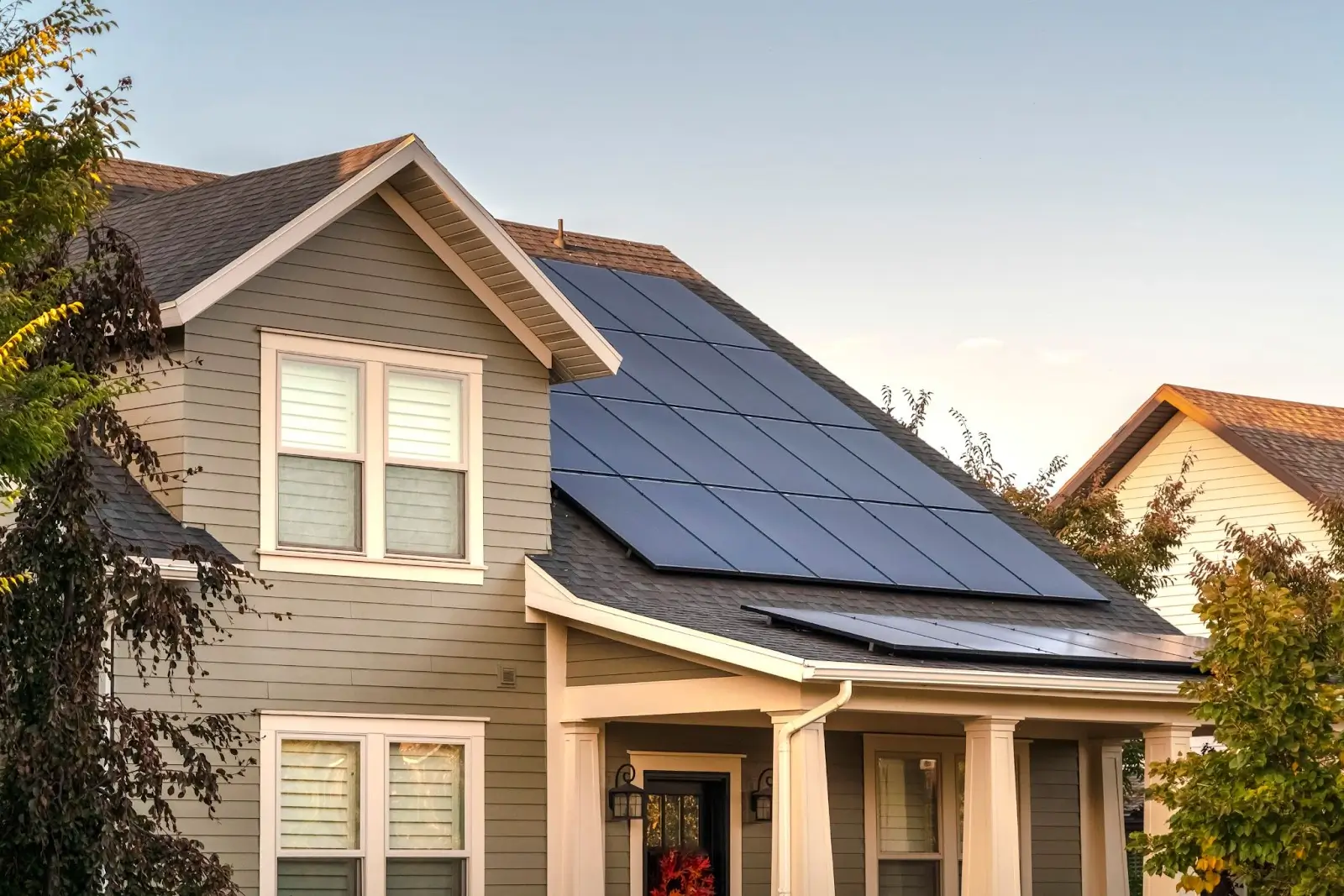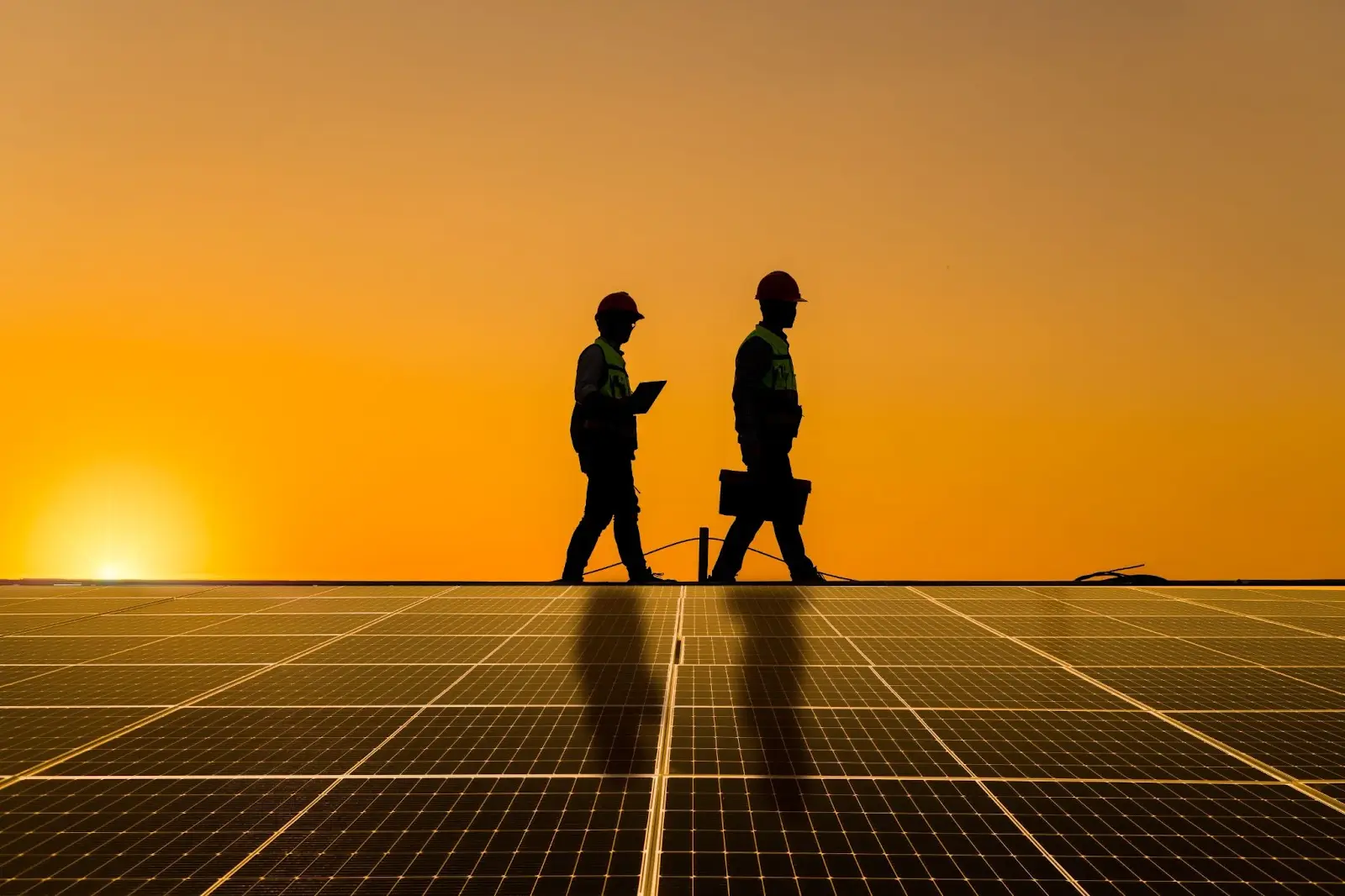Considering investing in solar panels? Understanding their return on investment (ROI) is an essential point.
Solar energy can significantly reduce your electricity bills while potentially increasing your home’s value.
However, the upfront costs and various factors influencing the payback period for solar panels may seem daunting.
But don’t be afraid as we break down everything you need to know about maximizing the return on investment for solar panels.
What Is The Return On Investment (ROI) For Solar Panels?
The return on investment (ROI) for solar panels hinges on several factors. Initially, it encompasses the upfront costs of purchasing and installing the panels, which can vary depending on factors like system size, location, and equipment quality.
ROI calculation considers the ongoing savings generated through reduced electricity bills and potential income from selling excess energy back to the grid through net metering programs.
Additionally, incentives such as tax credits and rebates further influence the ROI, making it imperative to assess both short-term and long-term financial implications when considering solar panel installation.
How Do Solar Panels Save You Money?
Solar panels offer various avenues to save money, from reducing electricity bills to leveraging incentives and net metering programs.
Electricity Bill Savings
Solar panels harness sunlight to generate electricity, thereby significantly reducing reliance on grid power and consequently lowering monthly electricity bills. It allows substantial long-term savings for homeowners and businesses alike.
Net Metering
Net metering allows solar panel owners to feed excess electricity they generate back into the grid, earning credits that can offset future electricity costs. Thus, it effectively maximizes the financial benefits of solar energy production.
Solar Tax Incentives
Governments often offer tax incentives, such as federal investment tax credits (ITC) and state-level rebates, to encourage the adoption of renewable energy sources like solar power. It provides upfront cost savings and enhances the overall financial attractiveness of solar panel installation.
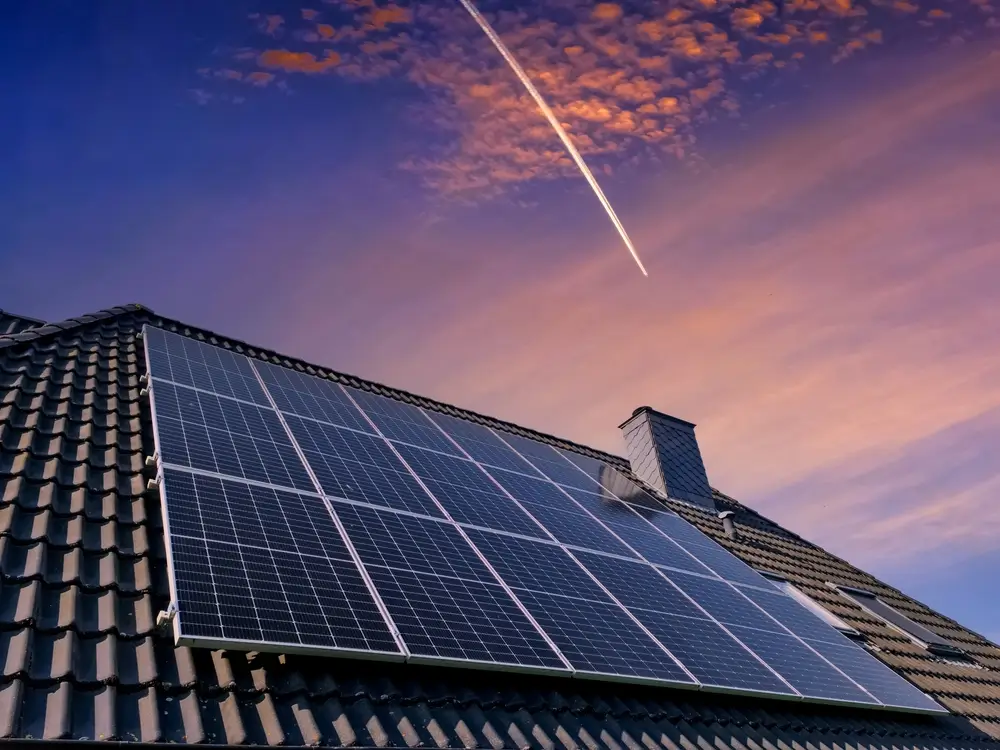
What Factors Affect Solar Panel ROI?
Numerous factors influence in determining what is the ROI on solar panels, shaping the financial viability of installation and long-term benefits.
Installation Costs
The initial investment in solar panels includes expenses related to purchasing equipment, hiring professionals for installation, and any additional structural modifications required, impacting the overall ROI significantly.
Inspection Fee & Permits
Before installation, homeowners must obtain permits and undergo inspections. Also included are incurring additional fees that contribute to the upfront costs and influence the overall ROI of solar panel installation.
Maintenance & Repair Costs
While solar panels generally require minimal maintenance, occasional repairs or replacements may be necessary over their lifespan.
Sun Exposure & Weather Condition
The amount of sunlight a location receives and prevailing weather conditions directly impact solar panel efficiency.
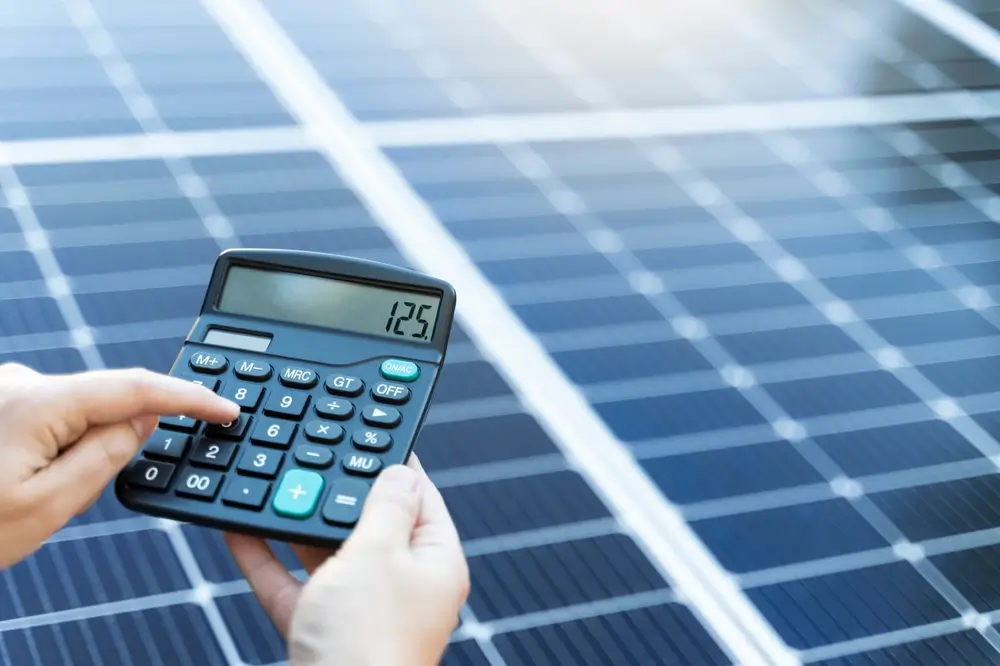
How To Calculate Your Solar ROI
Calculating your ROI for solar panels involves several steps to assess initial costs, incentives, energy savings, and long-term financial benefits accurately.
Add Up Your Total Initial Solar Costs
Begin by totaling expenses related to purchasing and installing solar panels, including equipment, labor, permits, and any necessary upgrades to your property’s electrical system.
Apply Tax Credits and Other Incentives
Factor in available incentives such as federal and state tax credits, rebates, and other financial incentives that can significantly reduce the initial cost of solar installation, improving your ROI.
Estimate Your Annual Energy Costs
Determine your current annual electricity expenses to gauge the potential savings from switching to solar energy, considering factors like your current electricity rate and anticipated future increases.
Calculate Your Solar Payback Period
Determine how long it will take for your accumulated energy savings to offset your initial investment in solar panels, providing insight into when your system will begin generating a positive return.
Calculate Your Lifetime Savings
Project the total savings over the lifespan of your solar panels, considering factors like energy production, utility rate increases, and maintenance costs.
Calculate Your Solar ROI
Finally, calculate your solar ROI by comparing the total lifetime savings to your initial investment, providing a clear understanding of the financial benefits of investing in solar energy for your home or business.
What Is The Average Solar Panel ROI?
Determining the average return on investment ROI for solar panels involves considering various factors such as installation costs, energy savings, incentives, and the lifespan of the system.
On average, solar panel systems can yield an ROI ranging from 10% to 30% over their lifespan, depending on factors like location, system size, local energy rates, and available incentives.
While upfront costs may seem significant, the long-term financial benefits, including reduced electricity bills and potential incentives like tax credits, contribute to a favorable ROI for many solar panel owners.
What Is The Average Solar Panel Payback Period?
The average payback period for solar panels refers to the time it takes for the accumulated energy savings to offset the initial investment in the solar panel system.
Typically, solar panel payback periods range from 5 to 10 years, depending on factors like system cost, energy production, local electricity rates, and available incentives.
In regions with high electricity costs and strong sunlight exposure, payback periods tend to be shorter, making solar panel installation a financially attractive investment for homeowners and businesses alike.
Are Solar Panels Good Investments?
Solar panels are generally considered excellent investments due to their potential for long-term financial returns. With advancements in technology and decreasing installation costs, solar energy has become increasingly accessible and affordable for homeowners and businesses.
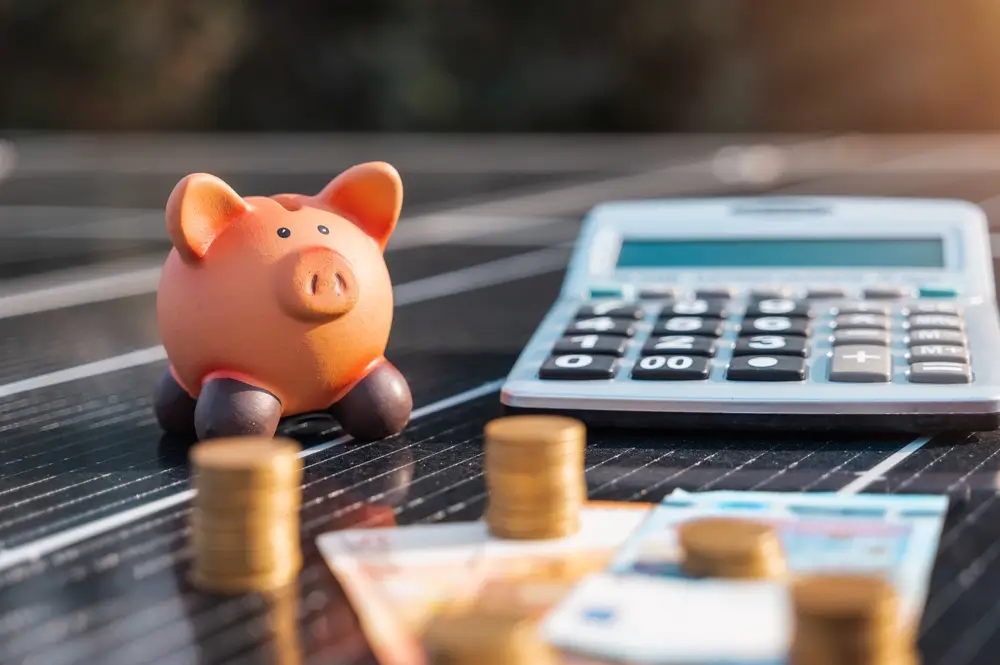
Do Solar Panels Have a Good ROI?
Assessing the ROI of solar panels reveals a compelling financial case for their adoption. With advancements in technology driving down residential installation costs and increasing energy efficiency, solar panels offer a solid ROI over their lifespan.
Factors such as reduced electricity bills, potential incentives like tax credits, and the ability to sell excess energy back to the grid contribute to the attractiveness of solar investments.
With service locations across most major cities. Ethical Solar Group provides reliable and efficient solar panel installation tailored to each customer’s needs.
Going solar not only offers immediate financial benefits but also contributes to building a more sustainable future for generations to come. Make the switch to solar with Ethical Solar Group and start saving today!


